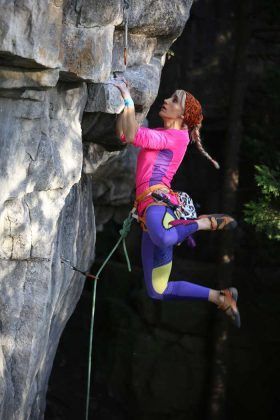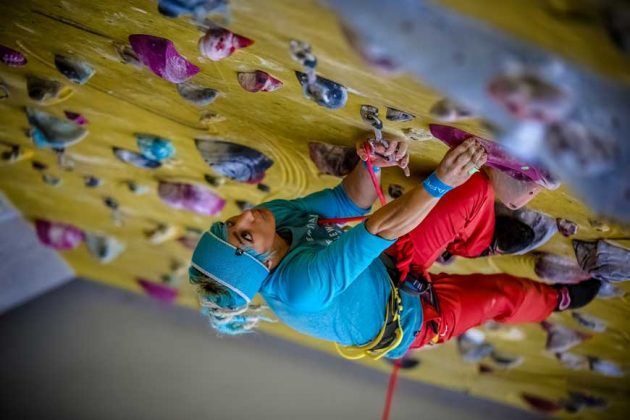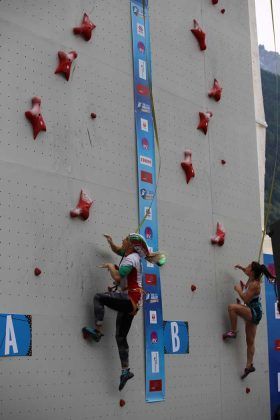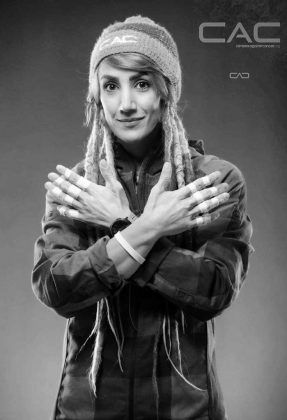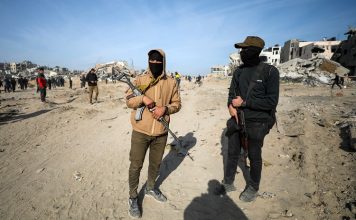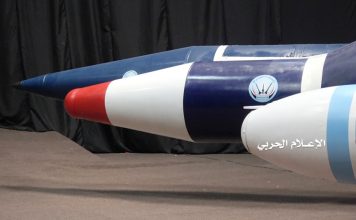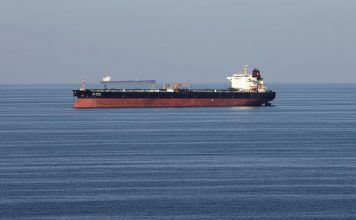Farnaz Esmaeilzadeh is an Iranian-born speed climber (on rocks, walls, and poles) and the gold medalist at the Canadian National Championship in 2015. She is ranked seventh in the International Federation of Sport Climbing (IFSC) overall World Climbing Cup ranking.
Ms. Esmaeilzadeh is the only Iranian speed climber ranked by the IFSC.
Esmaeilzadeh received a silver medal in speed climbing at the 2012 International Master Cup, a gold medal in the 2013 Asian Continental Championship, and a silver medal in the Asian Continental Championship (Indonesia, 2014).
She has been Iran’s record holder in women’s speed climbing (9.00 secs) since 2007.
Esmaeilzadeh was dubbed “spider-woman” after footage of her at the world championship cup in Spain went viral on social media.
Esmaeilzadeh was born in 1988 in Borujerd, capital of the western province of Lorestan. She began indoor wall climbing at 13.
“My parents and the entire family have been my biggest supporters,” Esmaeilzadeh told Kayhan Life. “Some women do not choose a dangerous profession like rock climbing. However, I thrive on taking risks and find the sport exciting and exhilarating. I always wanted to do something different, something that only a few people dared to do. I enjoy rock climbing today as much as I did 20 years ago. My family culture has been the real impetus behind my success in this sport. My parents were mountain climbers. Sport has played a major role in my family.”
Esmaeilzadeh, who lives and works as a designer and coach in Canada, noted that despite winning major competitions in Iran and Asia, she receives no financial support and has to fund her efforts to compete in international tournaments herself.
Islamic Republic of Iran Broadcasting (IRIB) does not cover women rock climbing competitions, making it next to impossible for young and upcoming female athletes to receive financial support for training and competing in international tournaments.
Esmaeilzadeh referred to the lack of funding for the sport, particularly for female rock climbers in Iran. She has had to fund most of her training and efforts to compete at international tournaments.
“Lack of financial support has been a major problem for a long time, especially for female athletes because women’s sports competitions are not broadcast on TV,” Esmaeilzadeh explained. “I could not get any financial support for my efforts to take part in international competitions. Iran Mountaineering and Sport Climbing Federation (IMSCF) never helped with my expenses when I competed in international tournaments.”
Rock climbers must learn the sport’s basic techniques in well-equipped indoor facilities and train with qualified coaches. They must also use particular shoes, ropes, and equipment for outdoor and indoor rock, wall, and pole climbing.
“I did not have a professional coach when I first started training for competition,” Esmaeilzadeh said. “I am self-taught. Rock climbing was a relatively new sport, and we had limited resources. At first, I had to travel to various parts of Iran to practice, but later trained with rock climbers and teams in Europe.”
“Things are much better these days, but there is much room for improvement,” Esmaeilzadeh noted. “There are more sports centers now. The situation has improved for women athletes significantly. However, there is a huge discrepancy between conditions in Tehran and the rest of the country. There are several climbing centers in Tehran where men and women athletes can train together. There are very talented climbers in other regions of the country who do not have adequate equipment, proper climbing centers, and professional coaching. As a result, they cannot compete on the international level.”
[aesop_image img=”https://kayhanlife.com/wp-content/uploads/2020/11/farnaz-esmailzadeh_8.jpg” panorama=”off” credit=”Farnaz Esmaeilzadeh. KAYHAN LONDON” align=”center” lightbox=”off” captionsrc=”custom” captionposition=”left” revealfx=”off” overlay_revealfx=”off”]
“I finished sixth in the world competition in 2013. Unfortunately, no Iranian woman climber has improved that record since then,” Esmaeilzadeh explained. “International competitions are getting tougher every year, which requires climbers to receive better training and greater financial support. We also need a better team structure, something that does not exist [in Iran]. Most climbers train on their own. The national team does not train under a coherent and structured regime. Everything depends on funding that does not exist in Iran.”
The gap in sports facilities between Tehran and other provinces and Iran and the rest of the international community “is not limited to rock climbing. We are behind many countries in almost all sport disciplines. It is a massive gap,” Esmaeilzadeh said. “I want to help all rock climbers who live in Iranian provinces to have access to better equipment and training facilities. We can solve some of these problems by offering online courses. Some of these female athletes are very talented, but will not fulfill their potential without proper equipment, resources, and professional training.”
“I am in contact with the new generation of women climbers online,” Esmaeilzadeh said. “We have remote online sessions, discussing their training and achievements. Fortunately, many of them are passionate about the sport. However, they face fierce competition on the international level. The [Iranian] national team had several managers, but most of them have immigrated to other countries for personal reasons.”
“I am training for next year’s world championship, given this year’s competition was canceled because of the [COVID-19] pandemic,” Esmaeilzadeh noted. “Unfortunately, Iran will not have any athlete competing in this field in the 2021 [Tokyo] Olympic Games. I hope the situation will improve for the 2024 Paris Olympics.”
Although Esmaeilzadeh specializes in speed climbing, she is an expert in other branches of the discipline, as well.
“I like speed climbing because it is exhilarating,” Esmaeilzadeh explained. “Early in my career, I realized that I could excel in this field. I achieved the Iranian women’s speed climbing in 2015 in Canada, and that record still stands today. Later I branched out to Lead, Bouldering, and outdoor rock climbing. I particularly enjoy outdoor rock climbing because it opens one’s mind and provides a larger perspective than indoor climbing. It is also more dangerous and therefore requires more rigorous and technical training.”
Esmaeilzadeh noted that people of all sexes and ages could learn to climb rocks. She said people as young as six and as old as 60 could enjoy the sport, as long as they are physically fit and healthy. However, she pointed out that most people reach their physical peak between 20 and 28. Older professional speed climbers stop competing at international competitions and enjoy outdoor rock climbing instead.
“Beginners need little equipment. They need essentials like magnesium carbonate [climbing chalk], which keep their hands dry,” Esmaeilzadeh explained. “It is the same powder that weightlifters and gymnasts use. If someone is interested in this sport, he or she can start with ordinary sneakers. They can learn basic climbing techniques gradually. In Iran and all other countries, people can rent climbing shoes, rope, and other equipment.”
This article was translated and adapted from Persian by Fardine Hamidi.

